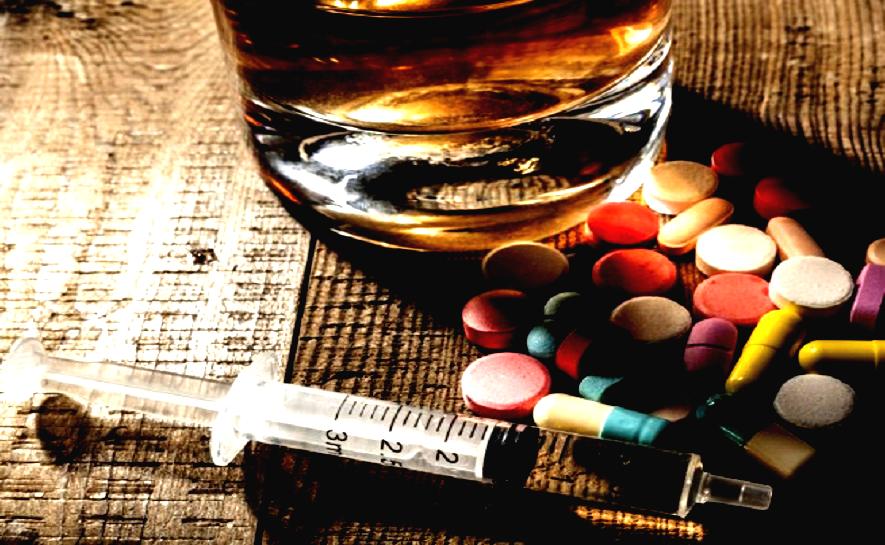Depression is a widespread mental health issue. It is sometimes called the common cold of mental health. The World Health Organization, or WHO, estimates that about 350 million people are affected by depression worldwide. While a physical cold might require a week of sitting on the couch eating chicken soup and demolishing a box of tissues, the “common cold of mental health” can range in severity from a funk lasting several weeks to being immobilized by crushing despair. Fortunately, most cases of depression aren’t on the crushing despair end of the spectrum. Common forms of depression can often be treated effectively with talk therapy, such as cognitive behavioural therapy, or CBT, with prescription medication, or both. Lifestyle changes are often helpful as well. More persistent forms of depression, though, might require more intensive forms of treatment. Here are some reasons you might consider entering a treatment center for depression.
Your Current Depression Treatment hasn’t Worked
Typical treatments for depression don’t start working right away. A typical course of CBT might last eight or 10 weeks and common antidepressant medications typically take four to six weeks to start working. It’s important to give these interventions at least a few months to work before changing tracks. Even if they don’t work after a few months, changing medication might still make a big difference. Everyone responds differently to medications and at the moment it’s impossible to know beforehand what medication will work best for a specific person. This may take a year or more of trial and error before you find a good fit. As miserable as depression is, you have to be a little patient while trying to work out the best treatment. If you’ve tried different medications and therapists and nothing seems to help, it might be time to look into more intensive treatment.
You Want to Try Transcranial Magnetic Stimulation
For treatment-resistant depression, the last resort used to be electroconvulsive therapy, or ECT. While ECT is far safer and more effective than it used to be, it does requires sedation and it may have some cognitive side effects such as confusion and memory loss. Now there is a good intermediate option called transcranial magnetic stimulation, or TMS. TMS is a noninvasive procedure that uses a strong electromagnet to stimulate the neurons in a part of your brain that is typically hypoactive in people suffering from depression. The idea is that you can essentially jumpstart this part of the brain, reducing depressive symptoms.
Because TMS targets a specific part of the brain, there are fewer side effects than ECT. There is now quite a bit of evidence that TMS is an effective treatment, but it has one major drawback: you have to be treated five days a week for about six weeks. Working daily TMS appointments into your daily schedule for six weeks is likely to be inconvenient. Entering a treatment facility that offers TMS allows you to complete a course of treatment as part of a comprehensive treatment plan and makes daily treatments much more convenient.
You Want to Participate in Intensive Therapy
For most people, a weekly therapy session, with or without medication can be effective for treating depression. However, there is always a tug of war between recovering from depression and the stress of daily life. Sometimes your appointment with your therapist just feels like one more thing you have to fit into your schedule. If you have severe depression, it can be hard to make your appointment even if it’s the only thing on your calendar. Entering treatment for depression is a way of focusing completely on recovery, with no distractions. This allows for more frequent and more intensive therapy sessions.
Some forms of therapy, such as dialectical behavioural therapy, or DBT include an individual session and a group session every week, while encouraging contact with your therapist between sessions. DBT has been shown to be effective for treating people struggling with major depression, especially those with persistent suicidal thoughts. Participating in DBT at a treatment center is more convenient because it eliminates frequent commutes, and it allows you more contact with your therapist and group members, as well as giving you plenty of time to do your therapy-related homework.
You Need a Change of Scene
A change of scene can have a significant effect on your state of mind. Doing the same things in the same places every day makes it easy to get into a rut. It becomes hard even to imagine other possibilities. Going to a new place automatically engages more of your brain. The novelty is stimulating and new possibilities open up to you. If you’ve been struggling with stubborn depression for a while, a change of scene is not likely to eradicate it completely, but it will probably help.
Going to a new place also breaks you out of old habits. It’s easy to get set in your ways and drift into an automatic routine. A healthy routine can be extremely helpful, but a mediocre or bad routine can drag you down. Getting treatment in a new place makes it easier to break old bad habits and form healthy new habits. It’s like a fresh start. After treatment, you can take your new habits home with you.
It’s also a nice bonus is you happen to be going someplace beautiful. Natural environments have been shown to reduce levels of stress, anxiety, and depression. They also encourage you to get outside and enjoy fresh air and sunlight. Exercising in a natural environment is one of the best things you can do for your mental and physical health.
You Have a Substance Use Disorder Too
About half of people who struggle with depression also have a substance use issue. A substance use issue is not necessarily an addiction. Problems can arise from using alcohol or drugs to cope with depression. Excessive use of substances, even if it’s not an addiction can also make depression worse. Treating depression effectively also requires integrated treatment for substance use.
If you or someone you love is struggling with depression or addiction, The Dawn Medical Rehab and Wellness center can help. We are one of Thailand’s most respected addiction treatment and wellness centers. We use established, research-backed treatment modalities such as CBT and MBCT, as well as cutting-edge treatment modalities to provide personalized care to treat addiction, depression, anxiety, bipolar disorder, personality disorders, PTSD, and executive burnout. See our contact page to reach us by phone or email.
Related Posts
 A Holistic Approach to a Complex Problem: Understanding Medication-Assisted Treatment
Though medication-assisted treatment has been shown to be effective in reducing relapse and strengthening long-term sobriety, it is sometimes misunderstood. Knowing the facts and reasons for considering medication-assisted treatment can...
A Holistic Approach to a Complex Problem: Understanding Medication-Assisted Treatment
Though medication-assisted treatment has been shown to be effective in reducing relapse and strengthening long-term sobriety, it is sometimes misunderstood. Knowing the facts and reasons for considering medication-assisted treatment can...
 How Does Transcranial Magnetic Stimulation Help Relieve Depression?
Transcranial magnetic stimulation, or TMS, is a cutting-edge therapy primarily used for major depression. It’s a noninvasive procedure that uses an electromagnet to stimulate neurons in a specific part of the brain....
How Does Transcranial Magnetic Stimulation Help Relieve Depression?
Transcranial magnetic stimulation, or TMS, is a cutting-edge therapy primarily used for major depression. It’s a noninvasive procedure that uses an electromagnet to stimulate neurons in a specific part of the brain....
 Why Dual Diagnosis Treatment Matters
Addiction and mental health issues often overlap. Most people who seek treatment for addiction will also have a mental health issue that needs to be addressed, whether they’re aware of...
Why Dual Diagnosis Treatment Matters
Addiction and mental health issues often overlap. Most people who seek treatment for addiction will also have a mental health issue that needs to be addressed, whether they’re aware of...
 Why Drugs Are Addictive : What Turns a Regular Person into an Addict?
The drugs that harm your body, your relationships and your community have the highest possibility of addiction and abuse. Why are some drugs so irresistible that even people who use...
Why Drugs Are Addictive : What Turns a Regular Person into an Addict?
The drugs that harm your body, your relationships and your community have the highest possibility of addiction and abuse. Why are some drugs so irresistible that even people who use...





